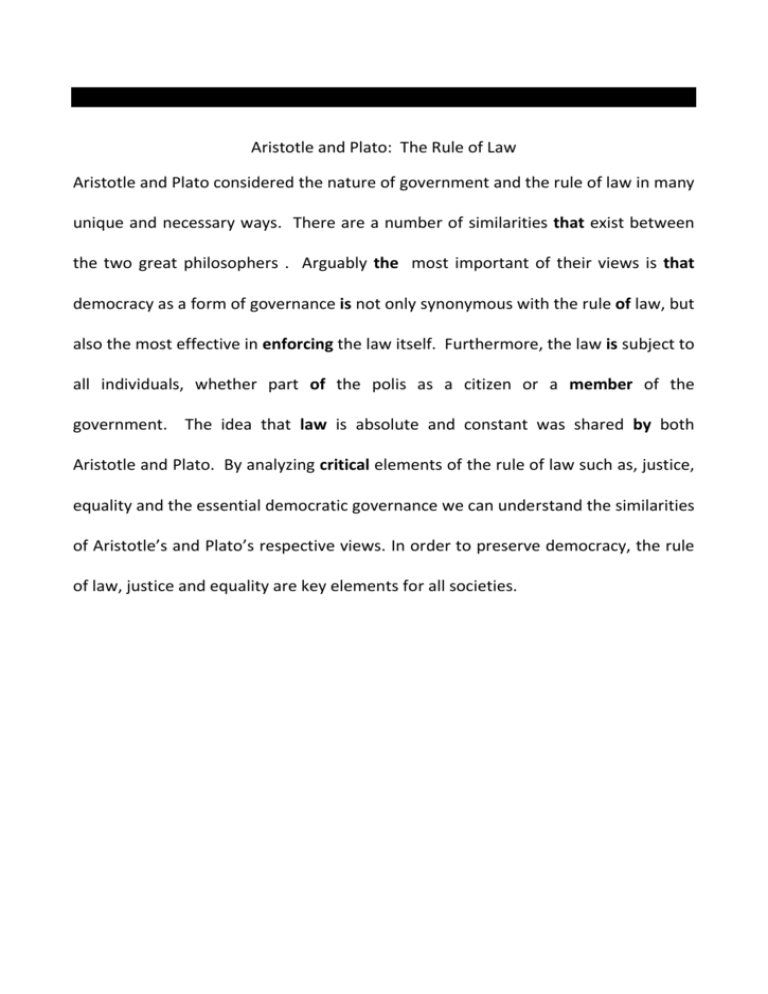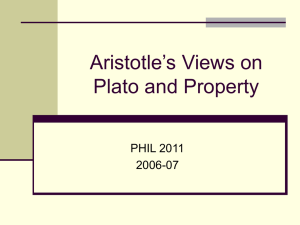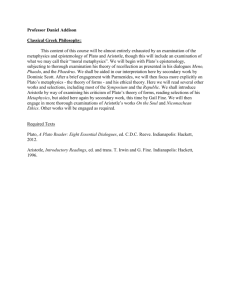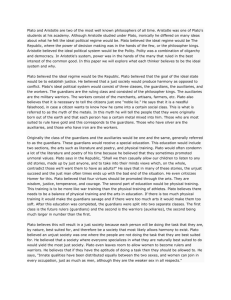Aristotle and Plato
advertisement

Aristotle and Plato: The Rule of Law Aristotle and Plato considered the nature of government and the rule of law in many unique and necessary ways. There are a number of similarities that exist between the two great philosophers . Arguably the most important of their views is that democracy as a form of governance is not only synonymous with the rule of law, but also the most effective in enforcing the law itself. Furthermore, the law is subject to all individuals, whether part of the polis as a citizen or a member of the government. The idea that law is absolute and constant was shared by both Aristotle and Plato. By analyzing critical elements of the rule of law such as, justice, equality and the essential democratic governance we can understand the similarities of Aristotle’s and Plato’s respective views. In order to preserve democracy, the rule of law, justice and equality are key elements for all societies. Aristotle and Plato: The Rule of Law Aristotle and Plato considered the nature of government and the rule of law in many unique and necessary ways. There are a number of similarities (1) _______ exist between the two great philosophers . Arguably (2) _______ most important of their views is (3) _______ democracy as a form of governance (4) _______ not only synonymous with the rule (5) _______ law, but also the most effective in (6) _______ the law itself. Furthermore, the law (7) _______ subject to all individuals, whether part (8) _______ the polis as a citizen or a (9) _______ of the government. The idea that (10) _______ is absolute and constant was shared (11) _______ both Aristotle and Plato. By analyzing (12) _______ elements of the rule of law such as, justice, equality and the essential democratic governance we can understand the similarities of Aristotle’s and Plato’s respective views. In order to preserve democracy, the rule of law, justice and equality are key elements for all societies. BY - CRITICAL - ENFORCING - IS - IS - LAW - MEMBER - OF - OF - THAT - THAT – THE Speaking 1. In what countries is common law the legal system? 2. What do we mean by the term the ‘principle of binding precedent’? 3. What do we mean by the term ‘hierarchy of the courts’? 4. Do judges have to apply the decisions of a minor court in the common law system? Dictation The legal system in many countries such as Great Britain and the USA is based on common law. This consists of the substantive law and procedural rules that are created by the judicial decisions made in courts. Essential to the common law is the hierarchy of the courts and the principle of binding precedent. In practice, the decision of a higher court is binding on a lower court. This means that the decision must be followed and in the course of a trial the judges must refer to existing precedents. Judges also consider decisions made in a lower court but they are not bound to follow them.








